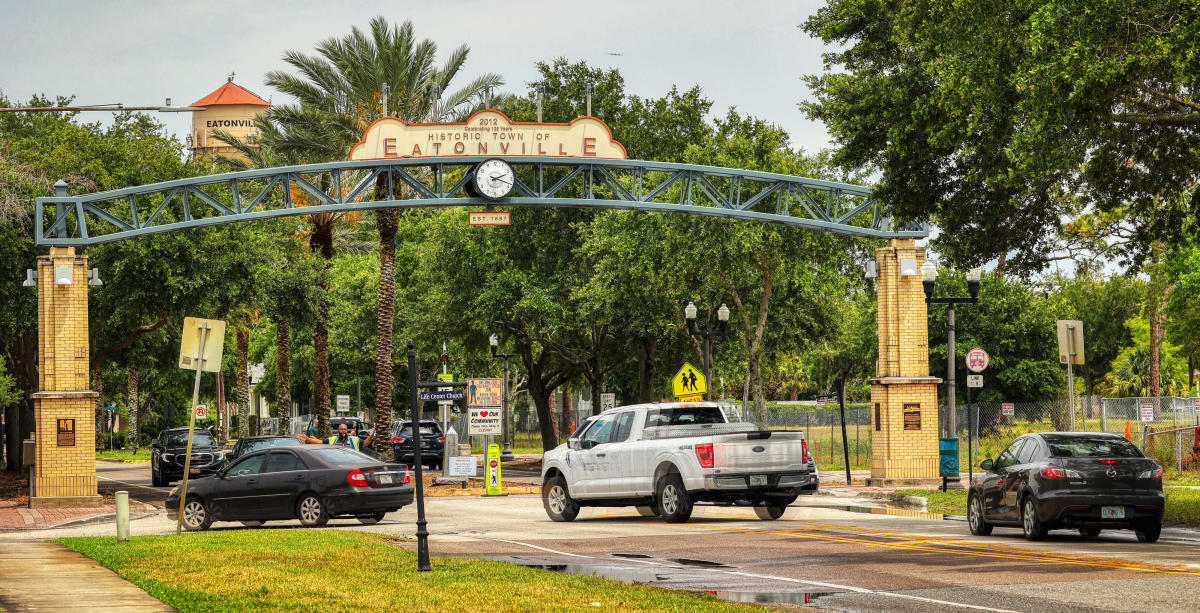
The Orange County School Board is weighing a settlement that would give the historic Hungerford High School property to a community trust in Eatonville in exchange for a small fee and an end to the legal battle over the land.
The school site, owned by the school district since the 1950s, is located in the heart of the historically Black town just north of Orlando.
The town and the Association to Preserve the Eatonville Community, which sued the school district in 2023 to stop the property’s sale to a private developer, have suggested a settlement that would include a lease-purchase plan so a trust — run by town residents — could obtain the 100 acres at a nominal cost, said Karen Castor Dentel, who this month left the school board after serving six years.
Advertisement
Advertisement
The deal could resolve a dispute between the local activists, the town, and the school district, which acquired the land seven decades ago on the cheap and under controversial circumstances. The mostly vacant land, which abuts Interstate-4, was recently considered for a state Black history museum and resolving ownership could be a key to the town’s revitalization efforts.
Castor Dentel said the board has met several times — behind closed doors as it does for all litigation — to discuss the proposed settlement.
A resolution is unlikely before January, she said.
The property serves as a de-facto gateway to Eatonville and an important piece of history for a town founded by freed slaves. The site was once home to the Robert F. Hungerford Normal and Industrial School, a private boarding school for Black students when segregation-era white school districts would not educate them.
Advertisement
Advertisement
The lawsuit, filed by the Southern Poverty Law Center on behalf of the association, aimed to stop the planned $14.6 million sale of the property to developers. Many in Eatonville, including Mayor Angie Gardner, objected to the sale, arguing it could gentrify the area and displace some residents.
The land sits at the western entrance to Eatonville’s downtown, on the corner of Kennedy Boulevard and Wymore Road, and is visible from I-4.
The sale fell through the same month the lawsuit was filed, and the school board then announced that it was no longer seeking a buyer and would work with the town to decide the future of the land. School attorneys have said the district cannot donate the land to Eatonville, as some residents want, though others have questioned that position.
Since then, Castor Dentel and others have worked to resolve the dispute. Castor Dentel, who this month was elected as Orange County’s next supervisor of elections, said she hopes the school board will agree to a deal.
Advertisement
Advertisement
More in U.S.
“This property is not merely an asset to OCPS, it represents a very sacred and important piece of history and resilience and self determination,” she said. “That’s worth more than what we could sell it for.”
Michael Ollendorff, an OCPS spokesman, said the district had no comment on the proposal because it does not comment on pending litigation and that minutes of the executive sessions in which details were shared are exempt from public disclosure before a vote.
Eatonville Mayor Gardner said she wants the school board to accept the settlement and allow the town to decide the property’s future. The town’s leaders, she said, have worked to develop a master plan in collaboration with an architectural firm — an effort to show the district how Eatonville will benefit from the land.
“There’s really no reason for the school board to say no to this,” she added.
Advertisement
Advertisement
While details are still in development with public hearings planned, Gardner said one idea would be to develop a Black history museum with classroom, retail and hotel room spaces. Earlier this year, the town made a vigorous effort to designate the land for the state’s proposed Florida’s Black history museum, though a site in St. John’s County edged out Eatonville in a contentious process.
Orange County Public Schools purchased the 300-acre property in the early 1950s for $16,000 and established the public Hungerford High, a segregated public school for Black students. After schools were desegregated, the district continued to operate the school until 2009 when it closed. The buildings were demolished a decade later and now the property is mostly an empty field surrounded by fencing.
The school district and town leaders tried to sell the property to developers for more than a decade, hoping to boost the now-limited tax base in Eatonville and jump-start a revitalization of the town, which has has struggled economically. The school district pays no taxes to the town, though a private owner would.
Town leaders have discussed and debated new projects for the Hungerford property, and town officials initially gave support to the sale that was eventually scuttled in February 2023.
Advertisement
Advertisement
OCPS previously has sold off several hundred acres of the land and also donated some for Eatonville to build a public library. Now, 100 acres of the Hungerford property remain.
Ruthi Critton, a fifth-generation Eatonville resident, earlier this month urged the school board to resolve the Hungerford issue.
The Hungerford property holds great value to residents, she told the board, and returning the Hungerford land to Eatonville could secure the town’s future for generations.
“Sometimes when you plant the seed, you’re not around to see the shade that the tree provides,” Critton said. “This is an opportunity to plant that seed.”
EMEA Tribune is not involved in this news article, it is taken from our partners and or from the News Agencies. Copyright and Credit go to the News Agencies, email news@emeatribune.com Follow our WhatsApp verified Channel



